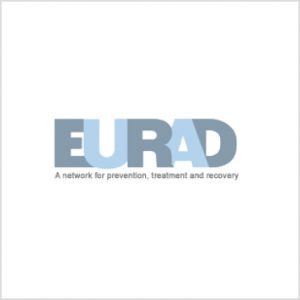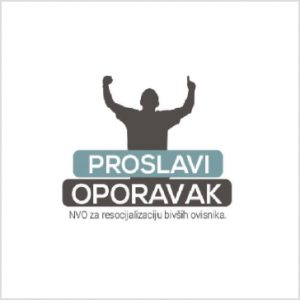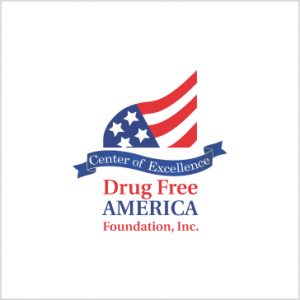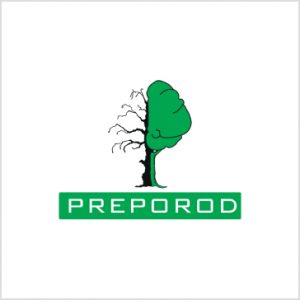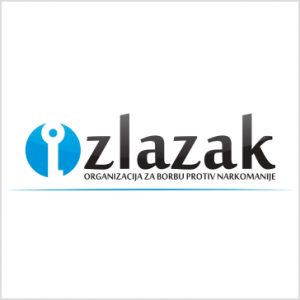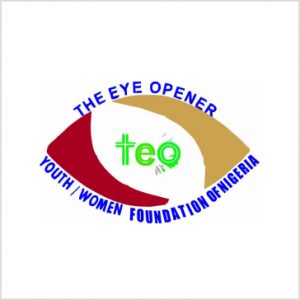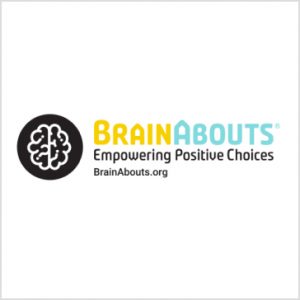by
People do not trust people who moderate or abstain from substances, particularly alcohol. There is a sense that those of us who do so are looking at everyone else and judging them. I suppose some do, but I don’t think most of us do. In fact, we tend to work overtime to accommodate use in order to not make people around us feel uncomfortable. We are even redefining recovery as use to accommodate our societal un-comfortability with abstinence from drug use, including alcohol. That is having a lot of negative consequences for addicted persons and those of us in recovery. As it always has been through history, the dynamic is encouraged by entities who have a profit motive to sell addictive drugs.
Substance misuse is still viewed as a moral failing, deeply imbedded in our society. Painting those who experience addiction as flawed persons who misuse substances due to their disordered character. It is also a double edge sword. While addiction is seen as a moral failing, recovery is also viewed with distrust. Bad people attempting to be good. Dirty people trying to become clean. Reformed moralists judging the rest of societies’ conduct. Mores to dissuade heavy substance use that disrupts society but that also isolates us once we find recovery.
The state of recovery means a great deal to people like me. Life itself. We are servile to addiction and an early and painful death if we stay on this path. While this may not always be true for persons with less severe forms, it is our reality. Accommodating harmful use of drugs like alcohol and cannabis, methamphetamine or cocaine without an emphasis on intervention for people like us is now becoming acceptable practice in our system programing and policies.
Abstinence has long been a central facet in recovery as defined by people with severe SUDs as their lived experience. Abstinence is critical for people on the far end of this spectrum for whom use often leads to suffering and death. Lumping it all under the term recovery is unhelpful at best, doing so conflates substance misuse that may respond to attempts to moderate with more severe conditions in which a person uses until death unless they abstain from use.
Some of these shifts to focus on normalizing use stem from a very legitimate desire to treat people who use drugs more humanly. We should. There is perhaps no worse experience in our medical care system than being viewed as a drug addict. Our collective negative attitudes and poor treatment of persons with SUDs is a huge factor in persons not seeking help. Yet, we also have to be careful to do so in ways we do not normalize problematic drug use and addiction in ways that we allow people to continue to suffer under the guise of choice. Addiction is a brain condition impacting cognition. This movement is unintentionally creating additional suffering for persons with severe SUDs.
We lack consensus terminology to describe these nuances, making the conceptualization of healing from drug misuse and addiction across the spectrum of flourishing more challenging. We lack proper delineation in respect to substance use disorders (SUD) and its healing. Substance use, misuse and addiction are on a continuum. Healing from a substance use condition also lies on a continuum. A person with a “milder” form of an SUD may experience very different dynamics in respect to their use or even be in an early stage of a more severe SUD.
Recovery is becoming a catch all term meaning any form of change at all. We need to develop a taxonomy to describe these nuances in ways that affirm healing and help further the broader understanding of substance misuse, addiction, and the continuum of healing, including abstinence which has historically been experienced as recovery for those with this lived experience.
Brian Coon recently posted “Recovery Oriented Systems of Care” and “Recovery Management” are slowly becoming “Using-Oriented Systems of Care” and “Using Management.” He notes how increasingly, there is a lot of push back against abstinence from substance use for persons who are addicted within the treatment industry. He talks about how he is seeing a move toward defining recovery in a way that includes using as the norm, replacing abstinence as a central feature of recovery. While some people can moderate, there are very real risks of overstating moderation as a pathway for addicted persons. History is replete with examples of how this fails tragically for those of us with the most severe forms of the condition.
A few months back I had a dinner conversation with some recovering people from across the country. As our meal progressed, the discussion drifted into how increasingly pervasive views on harm reduction are leading some people in long term recovery to abandon abstinence and experiment with moderation. We talked about some of the tragic consequences we were seeing. Everyone had stories, but also spoke about how it is a taboo topic in the national recovery community as collectively we are moving to accommodate addictive drug use into the paradigm of recovery.
On social media, recovery advocates across the country embraced California Sober after Demi Lovato talked about its virtues, which includes smoking pot. The very same recovery advocacy circles on social media fell silent when she came out not long after that reversing her position on noting that “Sober Sober” was the only way for her. I am glad she is okay. The linked article talks about how moderation often fails for people as it did for Demi.
You could hear a pin drop on social media feeds. The point of not using drugs as a way to avoid death from addiction has been largely forgotten in many of our circles. The normalization of use seems a primary goal of interest groups operating in our space. Not using drugs is becoming the abnormal state. Those who opt not to use to sustain their lives are depicted as the minority to be marginalized. Elitists to distrust, which fits into our culture which is oriented to using as the normal state. A recovery movement redefined 180 degrees. One centered on the lived experience of active use rather than the journey of recovery. This will likely end badly for many with the most severe forms of SUD.
Engaging persons with SUDs
There is criticism of treatment centers requiring only one standard for access to care, abstinence. Programs should not do that. It is vital that we engage people with more moderate forms of SUD or those in early stages of a more severe SUD issue. It should not be considered a new concept. It was the standard of care in the outpatient program I trained at 35 years ago. We worked with many people who were exploring their substance use following a consequence to their life due to their use. We would explore risk factors and their capacity to moderate without judgement. Some were able to moderate. Lots of people ended up returning to care because we had formed a therapeutic alliance, and they came to terms with the need to pursue abstinence following failed attempts to moderate their use.
The most well-known example of how badly it can fail is the tragic story of Audrey Kishline, who founded Moderation Management. She vacillated between attempts at moderation and abstinence. She killed a father and his daughter while drinking and driving. Years later she took her own life. Senseless losses. Many of us in the recovery world see such things regularly, yet we are largely silent about these risks while systems move to embrace addictive drug use like alcohol and cannabis into the definition of recovery. As I have noted in other writings, it is clear that a lot of people with more milder forms of substance use can do so, but we are clouding things by terming it all recovery. Developing a nuanced taxonomy of healing from the range of substance use conditions will help us deepen our understanding of these facets of this highly complex issue.
As I noted above, there are a lot of interest groups who want to normalize addictive substance misuse as recovery. The question is why? What influences are there in America to normalize risky addictive drug use, even for those who may well die from addiction? Why also are the people most impacted by the risks of addictive drug use accommodating the normalization of the use of drugs, like alcohol, cannabis, cocaine, methamphetamine and even fentanyl? Who benefits?
Addiction is lucrative for related business interests:
- Industries selling addictive drugs have long targeted high-risk groups including youth and people in recovery.
- The Recovery Research Institute noted that an estimated 77% of alcohol was sold to drinkers consuming above guideline levels: 30% to harmful drinkers and 48% to hazardous drinkers. Further, alcohol consumed in excess of the guideline levels accounted for 44% of all sales.
- This 2016 World Health Organization paper on the health and social effects of nonmedical cannabis use identifies that there is a worrying increasing demand for treatment for cannabis use disorders and associated health conditions in high- and middle-income countries, (Page 1)and that in the US, about 10% of people who use cannabis become daily users and another 20−30% use it weekly (page 10).
- “Less Harmful” is how RJ Reynolds used to market filtered cigarettes, even as they made their products more addictive and touted the safety of their drug delivery systems with engineered science. Now we see Altria (formerly Phillip Morris) has a new marketing campaign noting that the company is dedicated to reducing the harms of tobacco use, even as vape products are being made more addictive and JUUL is marketed to children.
- We know infamous drug seller Purdue Pharma market strategy was to target sales to addicted persons and then assert that the problem facing the seemingly addicted patient was that he was not getting enough drugs under the concept of “pseudo-addiction” and then vilify us when we developed problems.
There is a playbook in selling addictive drugs. Capitalize on Americas distrust of abstainers. Downplay the consequences. Target children to get them addicted by making products attractive to them. Market to high-risk groups. Vilify those in recovery with the moral lens of puritanism. A true Catch 22 and like war the profiteers are far away from the battle.
Those of us with severe SUDs are in a precarious position as the world around us re-conceptualizes recovery to emphasize moderation of harmful drug use and discounting those experiencing the most severe form of this condition. Many people I knew died trying to achieve moderation. Raising such concerns has become nearly as taboo as addiction itself. There has been almost no public discourse of the harmful consequences of the shift our service system is making in respect to the definition of recovery and the treatment of people with severe forms of SUD into a moderation-oriented system. We are the losers in this dynamic, while those who sell these drugs are the winners.
We are their very best customers until we land in an early grave.
Perhaps we have entered the Post New Recovery Advocacy Movement era.
References
Addicts are to blame for their opioid addiction, says pharma executive. (n.d.). Lown Institute. Retrieved June 12, 2023, from https://lowninstitute.org/shkrelis/addicts-are-to-blame-for-their-opioid-addiction-says-pharma-executive/
Belluz, J. (2019, January 25). Juul ad study finds company targeted youth from beginning. Vox. https://www.vox.com/2019/1/25/18194953/vape-juul-e-cigarette-marketing
Bhattacharya, A., Angus, C., Pryce, R., Holmes, J., Brennan, A., & Meier, P. S. (2018). How dependent is the alcohol industry on heavy drinking in England?. Addiction (Abingdon, England), 113(12), 2225–2232. https://doi.org/10.1111/add.14386
Barry, C. L., McGinty, E. E., Pescosolido, B. A., & Goldman, H. H. (2014). Stigma, discrimination, treatment effectiveness, and policy: public views about drug addiction and mental illness. Psychiatric services (Washington, D.C.), 65(10), 1269–1272. https://doi.org/10.1176/appi.ps.201400140
Billstaufferpa. (2023, January 5). Developing Broad Consensus on How We Conceptualize the Resolution of Substance Misuse. https://recoveryreview.blog/2023/01/05/developing-broad-consensus-on-how-we-conceptualize-the-resolution-of-substance-misuse/
Brandt A. M. (2012). Inventing conflicts of interest: a history of tobacco industry tactics. American journal of public health, 102(1), 63–71. https://doi.org/10.2105/AJPH.2011.300292
Buchman, D. Z., Ho, A., & Illes, J. (2016). You Present like a Drug Addict: Patient and Clinician Perspectives on Trust and Trustworthiness in Chronic Pain Management. Pain medicine (Malden, Mass.), 17(8), 1394–1406. https://doi.org/10.1093/pm/pnv083
Carney, J. (2015, November 3). New research shows problems people face who don’t want to have a beer. Mail Online. https://www.dailymail.co.uk/news/article-3301236/Can-trust-doesn-t-drink-New-research-shows-problems-people-face-don-t-want-beer.html
Coon, B. (2023, May 20). “Recovery Oriented Systems of Care” and “Recovery Management” are slowly becoming “Using-Oriented Systems of Care” and “Using Management.” https://recoveryreview.blog/2023/05/20/recovery-oriented-systems-of-care-and-recovery-management-are-slowly-becoming-using-oriented-systems-of-care-and-using-management/
Definition of CATCH-22. (2019). Merriam-Webster.com. https://www.merriam-webster.com/dictionary/catch-22
Demi Lovato isn’t “California sober” anymore: “Sober sober is the only way to be.” (n.d.). USA TODAY. Retrieved June 12, 2023, from https://www.usatoday.com/story/entertainment/celebrities/2021/12/02/demi-lovato-shares-they-are-no-longer-california-sober/8843065002/
Fleming, R. Fogler, S., Stauffer, W., & Sargent, R. H. (February 2023). OPPORTUNITIES FOR CHANGE – An analysis of drug use and recovery stigma in the U.S. healthcare system. https://pro-a.org/wp-content/uploads/2023/02/Opportunities-for-Change-An-analysis-of-drug-use-and-recovery-stigma-in-the-U.S.-healthcare-system-3.pdf
Greene, M. S., & Chambers, R. A. (2015). Pseudoaddiction: Fact or Fiction? An Investigation of the Medical Literature. Current addiction reports, 2(4), 310–317. https://doi.org/10.1007/s40429-015-0074-7
Glaser, G. (2015, January 11). Addiction, Drunk Driving, and Suicide: The Struggles of Audrey Conn, Founder of “Moderation Management.” The Daily Beast. https://www.thedailybeast.com/addiction-drunk-driving-and-suicide-the-struggles-of-audrey-conn-founder-of-moderation-management
Guillou-Landreat, M., Dany, A., Le Reste, J. et al. Impact of alcohol marketing on drinkers with Alcohol use disorders seeking treatment: a mixed-method study protocol. BMC Public Health 20, 467 (2020). https://doi.org/10.1186/s12889-020-08543-6
How Purdue’s aggressive sales of a painkiller blew up in its face. (2019, October 18). France 24. https://www.france24.com/en/20191018-how-purdue-s-aggressive-sales-of-a-painkiller-blew-up-in-its-face
Irizar, P., Puddephatt, J. A., Warren, J. G., Field, M., Jones, A., Rose, A. K., Gage, S. H., & Goodwin, L. (2022). “Drinkers Like Me”: A Thematic Analysis of Comments Responding to an Online Article About Moderating Alcohol Consumption. Frontiers in psychology, 13, 780677. https://doi.org/10.3389/fpsyg. 2022.780677
Jackson, K. M., Janssen, T., & Gabrielli, J. (2018). Media/Marketing Influences on Adolescent and Young Adult Substance Abuse. Current addiction reports, 5(2), 146–157. https://doi.org/10.1007/s40429-018-0199-6
Jankowski, M., Krzystanek, M., Zejda, J. E., Majek, P., Lubanski, J., Lawson, J. A., & Brozek, G. (2019). E-Cigarettes are More Addictive than Traditional Cigarettes-A Study in Highly Educated Young People. International journal of environmental research and public health, 16(13), 2279. https://doi.org/10.3390/ijerph16132279
McNeely J, Kumar PC, Rieckmann T, et al. Barriers and facilitators affecting the implementation of substance use screening in primary care clinics: a qualitative study of patients, providers, and staff. Addict Sci Clin Pract. 2018;13(1):8.
[NIH]. (2020, September 30). Dr. Volkow Explains the Basics of Drugs & Addiction [Video]. NIDA. https://nida.nih.gov/videos/dr-volkow-explains-basics-drugs-addiction
Pia Mäkelä & Antti Maunu (2016) Come on, have a drink: The prevalence and cultural logic of social pressure to drink more, Drugs: Education, Prevention and Policy, 23:4, 312-321, DOI: 10.1080/09687637.2016.1179718
Priority Scientific Area #2: Develop and Test Novel Prevention, Treatment, Harm Reduction, and Recovery Support Strategies. (n.d.). National Institute on Drug Abuse. Retrieved June 12, 2023, from https://nida.nih.gov/about-nida/2022-2026-strategic-plan/priority-area-2
Reduce the Harm of Tobacco Products – Altria. (n.d.). Www.altria.com. Retrieved June 12, 2023, from https://www.altria.com/en/moving-beyond-smoking/reduce-the-harm-of-tobacco-products
RJ Reynolds Says Co. Strove For Less-Harmful Cigarettes – Law360. (n.d.). Www.law360.com. Retrieved June 12, 2023, from https://www.law360.com/articles/1355591/rj-reynolds-says-co-strove-for-less-harmful-cigarettes
The health and social effects of nonmedical cannabis use. (n.d.). Www.who.int. https://www.who.int/publications/i/item/9789241510240
The Impact of Alcohol Marketing on People in Recovery. (2023). https://www.alcohol-focus-scotland.org.uk/media/440269/impact-of-alcohol-marketing-on-people-in-recovery.pdf
Watts, M. (2020, July 24). America’s Heaviest Drinkers Consume Almost 60% of All Alcohol Sold. Newsweek. https://www.newsweek.com/americas-heaviest-drinkers-consume-almost-60-all-alcohol-sold-1520284
What would alcohol sales look like if excessive and problem drinkers drank in moderation? (2019, May 28). Recovery Research Institute. https://www.recoveryanswers.org/research-post/alcohol-sales-excessive-drinking/
Source: https://recoveryreview.blog/



